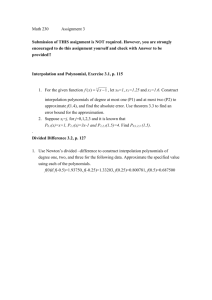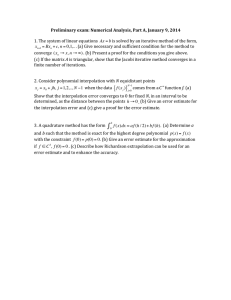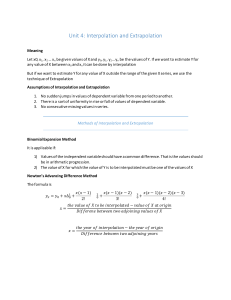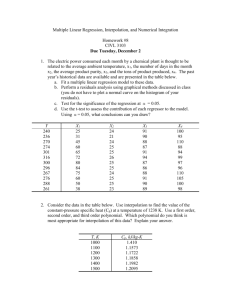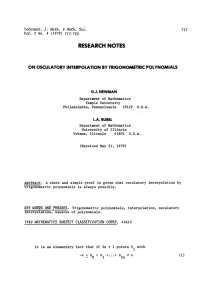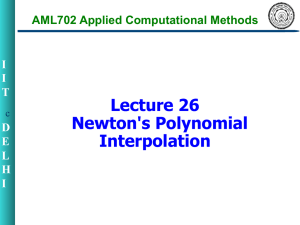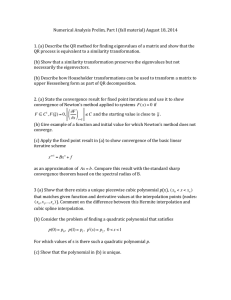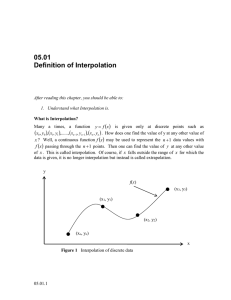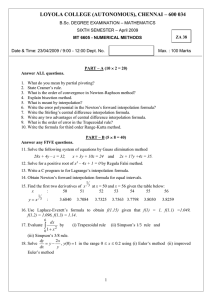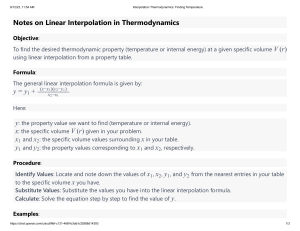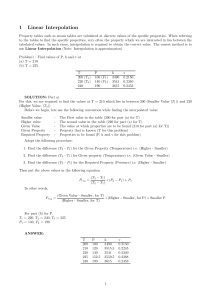Interpolation Multiple-Choice Test: Background & Polynomials
advertisement
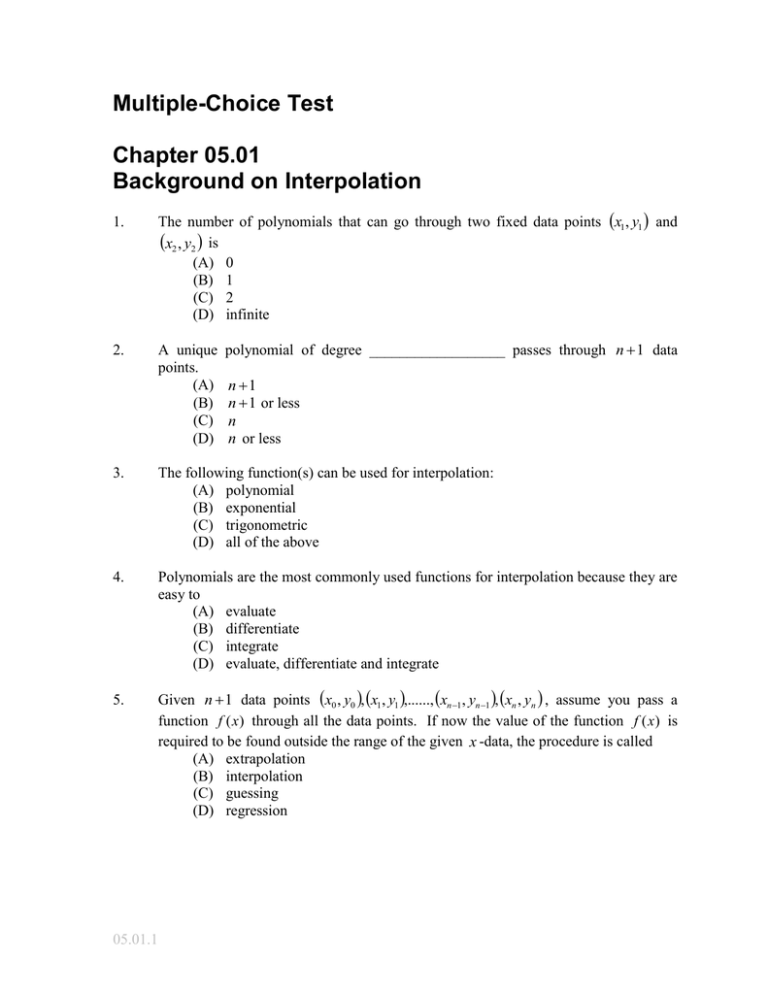
Multiple-Choice Test Chapter 05.01 Background on Interpolation The number of polynomials that can go through two fixed data points x1, y1 and x2 , y2 is (A) 0 (B) 1 (C) 2 (D) infinite 1. 2. A unique points. (A) (B) (C) (D) polynomial of degree __________________ passes through n 1 data n 1 n 1 or less n n or less 3. The following function(s) can be used for interpolation: (A) polynomial (B) exponential (C) trigonometric (D) all of the above 4. Polynomials are the most commonly used functions for interpolation because they are easy to (A) evaluate (B) differentiate (C) integrate (D) evaluate, differentiate and integrate Given n 1 data points x0 , y0 , x1 , y1 ,......, xn 1 , yn 1 , xn , yn , assume you pass a function f (x) through all the data points. If now the value of the function f (x) is required to be found outside the range of the given x -data, the procedure is called (A) extrapolation (B) interpolation (C) guessing (D) regression 5. 05.01.1 05.01.2 6. Chapter 05.01 Given three data points (1,6), (3,28), and (10, 231), it is found that the function y 2 x 2 3x 1 passes through the three data points. Your estimate of y at x 2 is most nearly (A) 6 (B) 15 (C) 17 (D) 28 For a complete solution, refer to the links at the end of the book.
